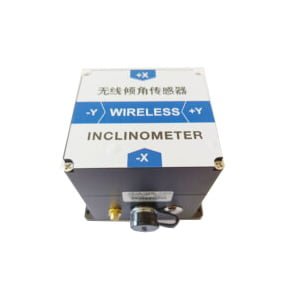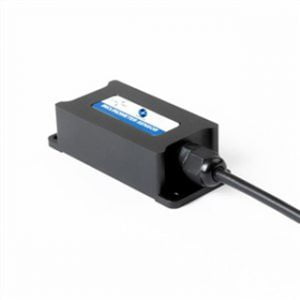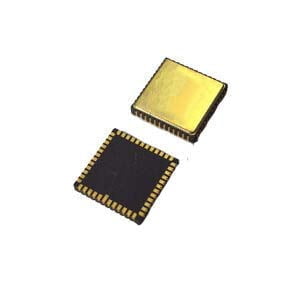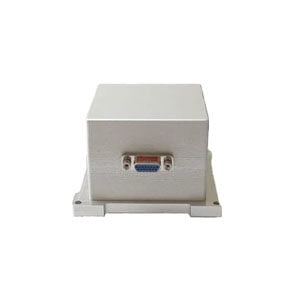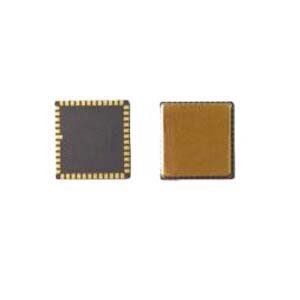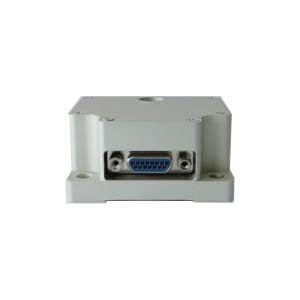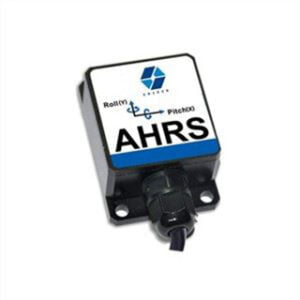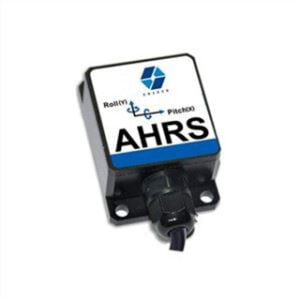Two Axis Digital Output Tilt Sensor
Introduction
ER-TS-5276DI digital two-axis inclinometer is a new generation of high-performance, small-sized, high-precision inclination sensor that can maintain high precision in complex motions, with a dynamic measurement accuracy of 0.3°, a stable accuracy of 0.05°, and a temperature drift of 0.01°/℃. The output mode has RS232, RS485, RS422, TTL, MODBUS standard interface that can be selected, and is easy to integrate into the user control system.
The product has a built-in MCU control system, vertical gyroscope and accelerometer, and integrated attitude solver. Using the optimal digital filtering algorithm, noise reduction, with the N-order Kalman filtering algorithm, through nonlinear compensation, quadrature compensation, temperature drift and other compensation to eliminate error sources and improve measurement accuracy. It can accurately output objects in strong vibration and motion environment posture angle.
Features
Two axis tilt monitoring
Dynamic measurement accuracy of 0.3°
Stable accuracy of 0.05°
Vertical gyroscope/N-order Kalman filter
Input voltage DC 5V
Wide temperature working -40~+85℃
Range 0~±90°(optional)
High nonlinear compensation, orthogonal compensation, temperature compensation
Baud rate 2400~115200 (adjustable)
Protection level IP67
Output RS232/RS485/TTL/MODBUS (optional)
Small volume (55*37*24mm) (customizable)
Applications
Balance car
Agricultural machinery, rotary drilling rig
AGV car
Mining machinery, oil logging equipment
Medical equipment
Hydraulic lifting platform
Inclination monitoring
Angle control of various construction machinery
Inspection of bridges and dams
Specifications
| Parameter | Condition | ER-TS-5276DI-10 | ER-TS-5276DI-30 | ER-TS-5276DI-60 | ER-TS-5276DI-90 | Unit |
| Measuring range | / | ±10 | ±30 | ±60 | ±90 | ° |
| Measurement of shaft | / | X, Y Axis | X, Y Axis | X, Y Axis | X, Y Axis | / |
| Zero temperature drift | -40~85° | ±0.01 | ±0.01 | ±0.01 | ±0.01 | °/℃ |
| Sensitivity temperature coefficient | -40~85° | ≤150 | ≤150 | ≤150 | ≤150 | ppm/℃ |
| Frequency response | DC response | 100 | 100 | 100 | 100 | Hz |
| Resolution | / | 0.01 | 0.01 | 0.01 | 0.01 | ° |
| Accuracy | -40~85℃ | 0.3 | 0.3 | 0.3 | 0.3 | ° |
| Long-term stability | -40~85℃ | <0.35 | ° | |||
| Power on start time | / | 0.2 | 0.2 | 0.2 | 0.2 | s |
| Response time | / | 0.01 | 0.01 | 0.01 | 0.01 | s |
| Rate | 5Hz output, 15Hz, 35Hz, 50Hz and 100HZ can set (RS485 without this function) | |||||
| Output signal | RS232 / RS485 / RS422 / TTL/PWM/CAN/MODBUS | |||||
| Average working time | ≥55,000 hours/time | |||||
| Impact resistant | 25000g, 0.5 ms, 3 times/axis | |||||
| Shock resistant | 10grms, 10~1000Hz | |||||
| Insulation resistance | ≥100MΩ | |||||
| Waterproof level | IP67 | |||||
| Cable | Standard 1.5 m length, wear resistance, oil proof, wide temperature, shielding cable 4*0.2mm² | |||||
| Weight | 75g (excluding boxes) | |||||
Application Techniques
1.The Difference between Tilt Sensor and Gyro Sensor
3.How to install the tilt sensor?
4.What are Tilt Switches and Tilt Sensors?
5.Do you Know the Working Principle of Inclinometer ?
6.How to Use the Tilt Sensor and How to Install It?
More Products
